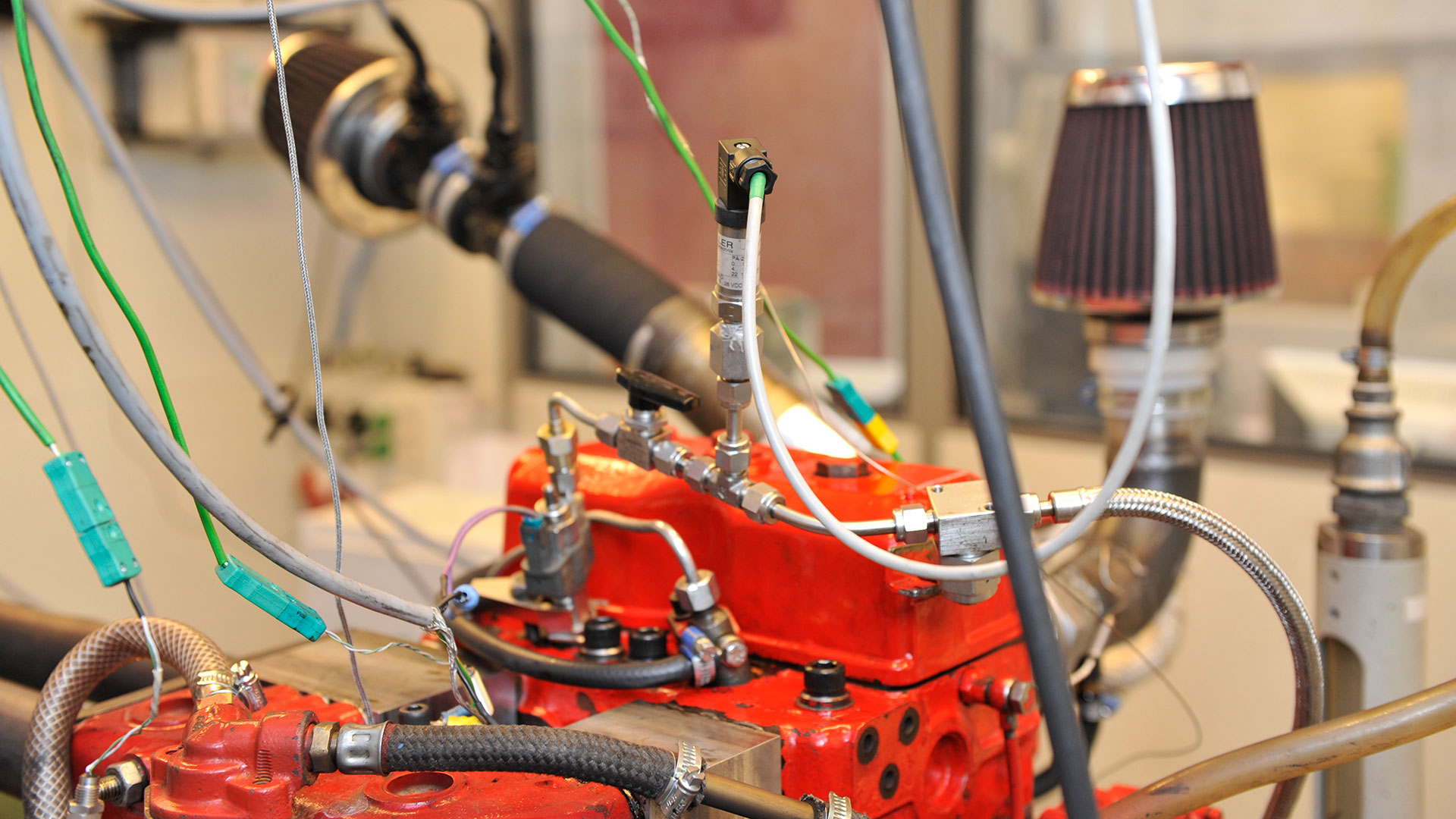Combustion Engine Lab
The Combustion Engine Lab facilitates research on renewable fuels and the advantages and disadvantages of each alternative fuel source. The lab investigates the fundamental principles in combustion engines, and uses computational modeling of thermodynamics, combustion and emission formation, fluid flow, heat transfer, and their interactions inside the engine.

The future energy supply for transportation, which to a large extend includes combustion engines, will have to be based on other fuels than conventional crude oil based fuels.
Application of alternative fuels such as hydrogen, ammonia, and methanol is, therefore, a major focus area in the research that takes place in the combustion engine lab.
The lab is equipped with the following facilities:
- 1 permanent chassis dynamometer for vehicle testing
- 8 engine test benches
- 2 pressurized chambers with optical access for fuel spray studies
- 1 combustion bomb
- Equipment for heat-release analysis, based on in-cylinder pressure signals
- 2 full flow dilution tunnels for collecting particulate matter from exhaust
- 1 mini dilution tunnel for collecting particulate matter from exhaust
- 2 sets of gas analyzers for measurem. of CO (NDIR), CO2 (NDIR), NOx (chemiluminesc.), UHC (FID), and O2 (ZiO)
- 1 fluorescence SO2 analyzer
- 1 Bosch Smoke Meter
- A chemical lab. for analysis of particulate emissions and fuel and lubricant composition
- Pressurized lubricity tester
- Pressurized visco-meter
- Pressurized tribo-tester.
- Transparent cylinder for the study of swirl flow in large engines
Contact
Bengt Håkan Johansson Professor Department of Civil and Mechanical Engineering bhajo@dtu.dk
Contact
Anders Ivarsson Associate Professor Department of Civil and Mechanical Engineering Phone: +45 45254230 aniv@dtu.dk